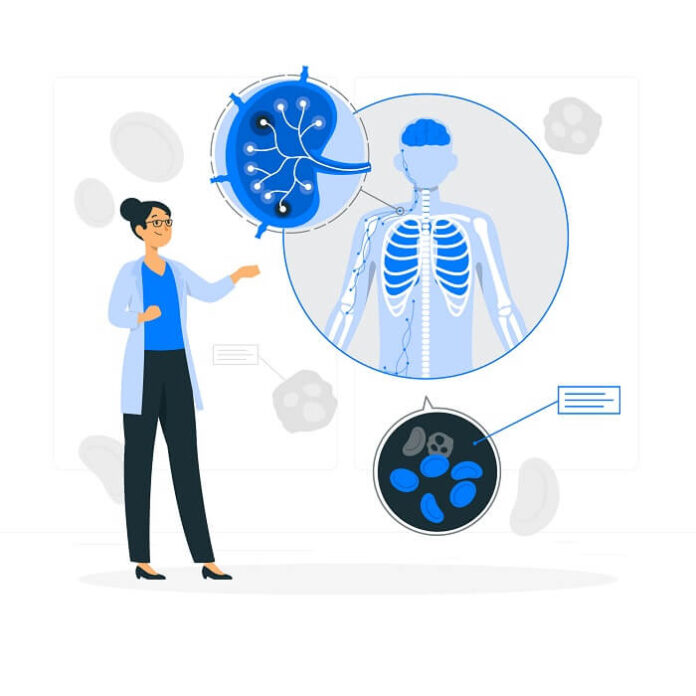A study led by Cambridge University Hospitals NHS Foundation Trust (CUH) and the Wellcome Sanger Institute has revealed that a small change to the chemotherapy regimen for Hodgkin lymphoma could significantly reduce long-term health impacts without compromising treatment effectiveness. Published in The Lancet Oncology, the findings may prompt a revision of national treatment guidelines for adult patients.
Hodgkin lymphoma, a rare and treatable blood cancer, is often diagnosed in younger individuals (ages 20–40). While over 95% of younger patients are successfully treated, traditional chemotherapy regimens can have lasting side effects, including infertility and long-term health complications.
The study compared two chemotherapy regimens: the existing eBEACOPP and a modified version called eBEACOPDac. Both achieved similar cancer remission rates (93.3% after three years), but patients treated with eBEACOPDac experienced fewer and less severe side effects. This newer regimen replaces the drug procarbazine with dacarbazine, a substitution already approved for use in children but now rigorously evaluated in adults for the first time.
The analysis included data from 1,945 patients treated with eBEACOPP and 312 patients treated with eBEACOPDac. Patients on the newer regimen spent less time in the hospital, required fewer blood transfusions, and showed faster recovery of fertility. Whole genome sequencing conducted at the Wellcome Sanger Institute also revealed that eBEACOPDac has a significantly reduced impact on patient genes compared to the standard treatment.
Dr. Raheleh Rahbari from the Wellcome Sanger Institute, another co-lead author, highlighted the role of genomics in improving healthcare: “Genome sequencing has allowed us to gain a deeper understanding of the long-term effects of chemotherapy, paving the way for treatments that minimize side effects.”
Dr. Cathy Burton, Chair of the UK Hodgkin Lymphoma Study Group, praised the findings as internationally significant, stating, “This evidence supports using eBEACOPDac for Hodgkin lymphoma treatment due to its reduced side effects and improvements in fertility recovery. These results should inform global treatment guidelines.”
The researchers hope that the study will lead to the widespread adoption of eBEACOPDac as the recommended chemotherapy for adults with Hodgkin lymphoma. Further long-term follow-up studies are planned to assess the full benefits of the regimen.
As reported by medicalxpress, this work demonstrates the potential of translating research into clinical practice and underscores the importance of ongoing innovations, which will be further advanced by the upcoming Cambridge Cancer Research Hospital.























